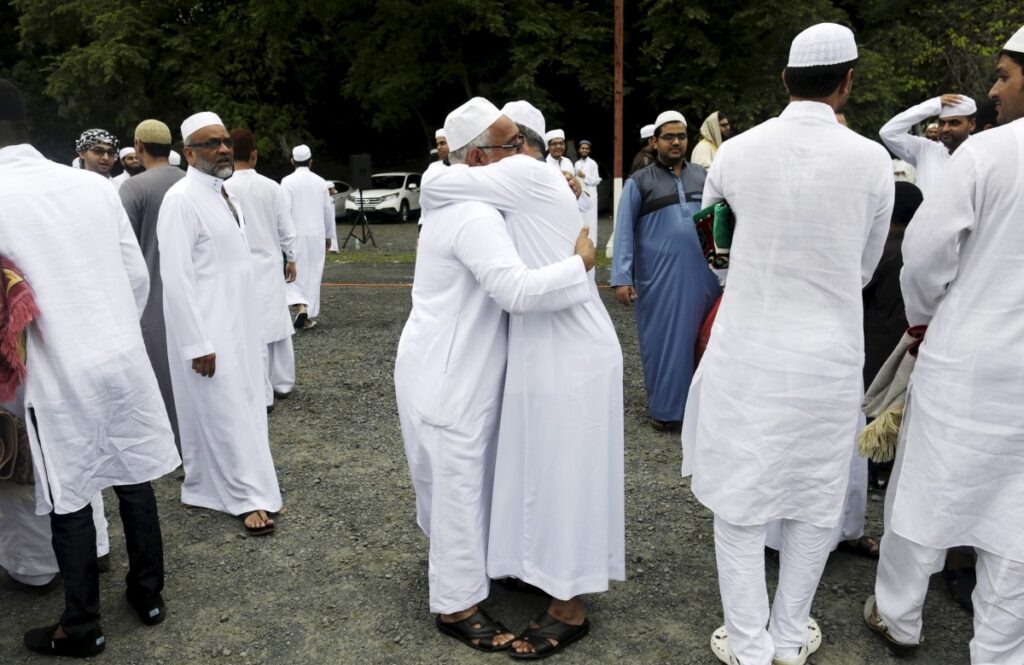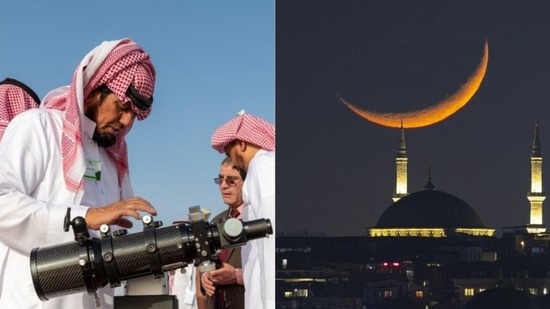Saudi Arabia will celebrate Eid-ul-Fitr on Sunday, marking the end of Ramadan with prayers, festivities, and charitable acts. The announcement follows the sighting of the new moon, signaling the start of the holiday.
Saudi Arabia has officially announced that it will celebrate Eid-ul-Fitr on Sunday, following the sighting of the new moon. The festival, which marks the conclusion of the holy month of Ramadan, is one of the most significant events in the Islamic calendar, bringing together families and communities in joyous celebration.
Eid-ul-Fitr, also known as the “Festival of Breaking the Fast,” is a day of celebration after a month of fasting, prayer, and reflection during Ramadan. For Muslims, Ramadan is a time for spiritual growth, self-discipline, and charity. The end of Ramadan is a momentous occasion that is marked by family gatherings, festive meals, and special prayers. Eid-ul-Fitr is a day of gratitude to Allah for the strength and patience shown during Ramadan, and it serves as a reminder to continue embodying the values of compassion, charity, and kindness year-round.
The Kingdom of Saudi Arabia, home to Islam’s two holiest cities, Mecca and Medina, is one of the most significant places for observing Islamic traditions and customs. Eid-ul-Fitr celebrations in the country are always a grand affair, marked by a mixture of religious observance and cultural festivities.
The Saudi Arabian Supreme Court officially confirmed the sighting of the new moon, which marks the beginning of the Islamic month of Shawwal. This announcement signals the end of the month-long fast of Ramadan and the start of the Eid festivities. As per Islamic tradition, the sighting of the new moon determines the timing of Eid-ul-Fitr, and it varies each year based on lunar observations.
Saudi authorities and religious leaders have emphasized the importance of confirming the moon sighting to ensure the proper observance of the holiday. The announcement was eagerly awaited by citizens, as it marks the transition from a month of fasting and spiritual reflection to a day of celebration and togetherness.
On Sunday morning, millions of Muslims across Saudi Arabia will gather for special Eid prayers, which are held in large mosques, open fields, and designated prayer grounds. The prayers are a key feature of the Eid celebration and are conducted in a congregational manner, symbolizing unity and collective worship.
The prayer consists of two units (rak’ahs) and is often followed by a sermon (khutbah), where the imam delivers a message of gratitude, hope, and encouragement for the Muslim community. Eid prayers are a chance for Muslims to come together, regardless of their backgrounds, in devotion and praise to Allah.
Additionally, it is a tradition for Muslims to give Zakat al-Fitr, a charitable donation given to the less fortunate before the Eid prayers. The act of giving Zakat al-Fitr ensures that those who are less fortunate can also partake in the celebrations, enjoy the festive meals, and feel the joy of Eid. In Saudi Arabia, this charity is widely distributed and serves as a reminder of the importance of helping those in need.
Beyond the religious observances, Eid-ul-Fitr is a time for festive celebrations and gatherings among families and friends. In Saudi Arabia, the streets are often lined with colorful decorations, and many families decorate their homes in preparation for the holiday. The excitement of Eid is palpable, with markets and shopping centers filled with people buying clothes, gifts, and sweets to mark the occasion.
Traditional dishes are prepared, with families coming together to share meals that vary by region. Popular dishes include dates, sweets like ma’amoul (a shortbread cookie filled with dates or nuts), and savory dishes such as lamb or rice.
Eid is also a time for visiting family members and friends, and many Saudis travel to be with loved ones during the holiday. It’s a day for giving gifts, wearing new clothes, and enjoying the company of those closest to you.

While Eid-ul-Fitr is a time of celebration, it is also a reminder of the importance of charity, gratitude, and humility. Throughout Ramadan, Muslims focus on acts of kindness, charity, and self-discipline, and Eid is an opportunity to continue that spirit of giving.
In Saudi Arabia, the government and various charitable organizations organize events to provide food and essential items to those in need. Eid serves as a reminder that the blessings of the holiday should be shared with others, particularly those who are less fortunate.
Eid-ul-Fitr in Saudi Arabia is a time of great joy, religious observance, and charitable giving. As the country prepares to celebrate this important holiday on Sunday, Muslims across the Kingdom and around the world will come together in prayer, reflection, and unity. It is a time to express gratitude for the strength shown during Ramadan, celebrate with loved ones, and extend kindness and generosity to those in need. The announcement of Eid-ul-Fitr’s celebration on Sunday brings a sense of excitement and anticipation, as the Kingdom joins the global Muslim community in marking the end of Ramadan.















 Categories
Categories









